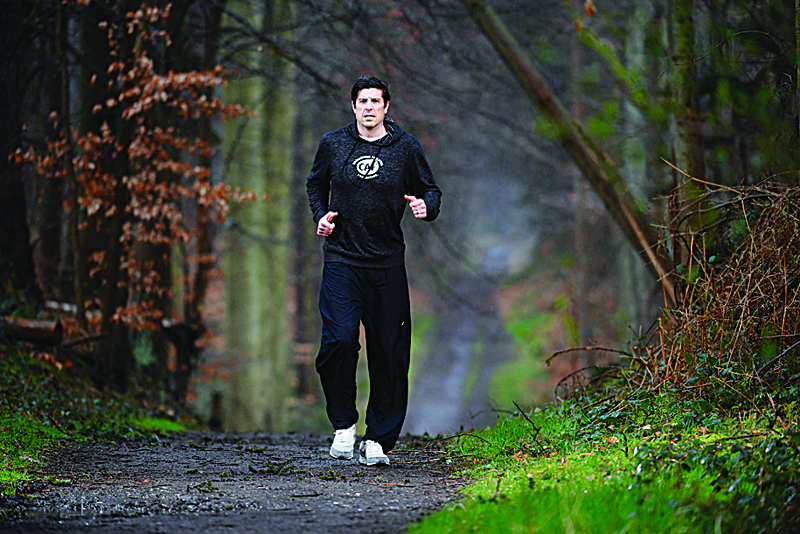TERVUREN, Belgium: Four months in hospital, 13 operations, a dead leg but still alive: For Sebastien Bellin, seriously injured in the jihadist attacks of 2016 in Brussels, "rebuilding" is still an ordeal. "I will be disabled for life, it is not easy but I have accepted it. It's a gift to have a second chance," said the 42-year-old Belgian, a former professional basketball player, at his home in Tervuren, near Brussels.
The suicide bombings, which Belgium will commemorate tomorrow, killed 32 people and injured more than 340 on March 22, 2016 at the national airport and a metro station near the European Union headquarters. Perpetrated by the French-Belgian jihadist cell that had already struck in Paris the previous November, killing 130, the Brussels blasts were claimed by the Islamic State group.
That morning, Bellin, who had turned to technical design after his sports career, was supposed to catch a flight to New York for a meeting with the US investors who had just bought his company. They were eager to meet him, he told AFP, and he brought his trip forward by 24 hours, from Wednesday to that fateful Tuesday.
At Zaventem airport, in the crowded check-in hall, the first suicide bomber detonated his explosive charge at 7.58am, then a second one went off about ten seconds later. Sixteen people were killed in the airport and another sixteen died shortly afterwards in the Maelbeek metro station, in central Brussels' European quarter.
'Rings on her fingers'
Bellin found himself on the ground, his legs bleeding, in the middle of debris and dust. He has kept in mind the image of a dead woman next to him. "I can still see the rings on her fingers, and very clearly her face, the blanket she was covered with," he said.
From that moment, the former captain of the Belgian national basketball team (2003-2008) realized how lucky he was to still be alive. Surprisingly, he said, he felt "a kind of tranquility in the minutes following the second explosion". "Of course my two daughters came to mind -- I didn't want my life to end," he said, but "I remained calm, instead of panicking and losing the energy I needed to survive."
He waited an hour and a half before being taken away in an ambulance, and does not like to dwell on his suffering as those minutes ticked by. As he waited, he managed to pull his 2.05-metre (six foot, seven inch) frame up onto a trolley, carrying the dead weight of his immobile legs. He compressed the bleeding as much as possible with makeshift tourniquets. Today, his right femur and left tibia are replaced by metal pins. He can no longer feel his left leg and, to move, has to compensate with his right leg, whose muscles are suffering in consequence.
'No tangible solution'
Five years on, Bellin's life is still punctuated by physiotherapy sessions and legal limbo over the medical expenses incurred for part of the treatment. "The state could have made a much greater effort, but after five years we still don't have a tangible solution," he said.
Though the attackers died in the blasts, a dozen of their alleged accomplices will go on trial, perhaps at the end of 2022. More than 700 civil plaintiffs have already been identified for the case, and many complain of the administrative ping-pong between the Belgian state and private insurers for compensation and damages. For the time being Bellin, a professional sportsman for fifteen years, spends a lot of time "running to rebuild his life".
In the forest of Tervuren, he trains intensively to prepare for the next challenge on his agenda: participating in this year's edition of the "IronMan" triathlon in Hawaii, one of the most famous in the world, scheduled for October. "Being disabled is not an end in itself -- a handicap can be improved, just like in golf!" he joked. "The handicap will not beat me. I am going to win." - AFP



